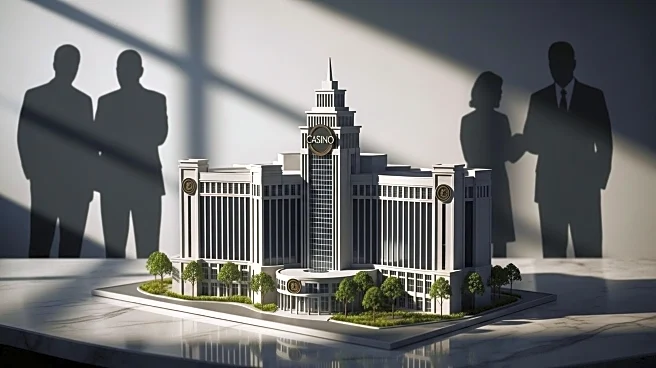What's Happening?
A committee representing city and state elected officials has rejected a proposal to build an $11.2 billion casino project on Manhattan’s East Side. The bid was submitted by New York office landlord Stefan Soloviev and Mohegan, aiming to establish the casino near the United Nations’ headquarters. This decision effectively ends the possibility of a casino being developed in Manhattan, a move that was part of a larger billion-dollar fight involving several stakeholders.
Why It's Important?
The rejection of the Manhattan casino bid is significant as it reflects the ongoing debate over urban development and the role of gambling establishments in major cities. The decision impacts potential economic benefits, such as job creation and increased tourism, that the casino could have brought to the area. It also highlights the concerns of city and state officials regarding the social and environmental implications of such a large-scale project in a densely populated urban area.
What's Next?
With the rejection of the Manhattan casino bid, stakeholders involved in the proposal may seek alternative locations or strategies to pursue their casino development plans. City and state officials will continue to evaluate other proposals that align with their urban planning and development goals. The decision may also prompt discussions on the future of gambling establishments in New York City and their role in the local economy.
Beyond the Headlines
The decision to reject the casino bid underscores the complex interplay between economic development and urban planning. It raises questions about the ethical considerations of introducing gambling facilities in urban centers and the potential impact on local communities. The outcome may influence future policy decisions regarding similar projects and the balance between economic growth and community welfare.








